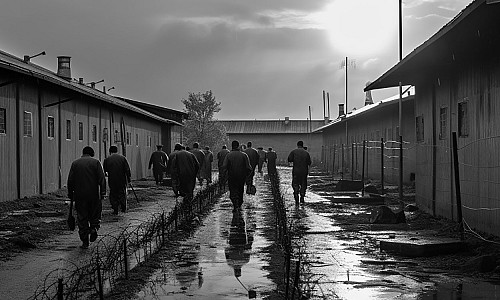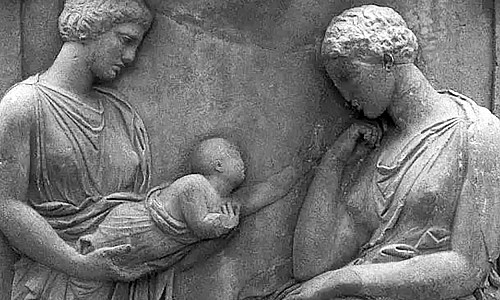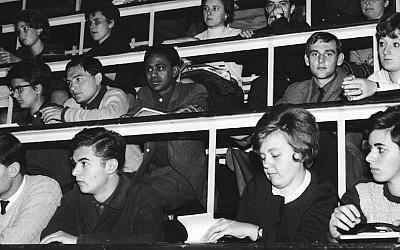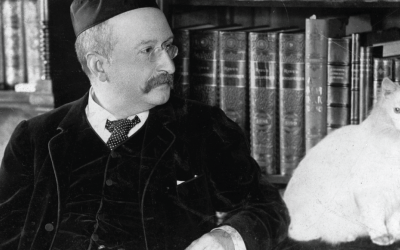Alexandra Bradner and Andrew P. Mills argue that teaching is a lot more than just telling
College teaching has changed. What was once the scholarly project of preparing meticulously supported, fully typed, 90-minute lectures in one’s area of expertise, to read verbatim to a rapt audience of well-prepared undergraduates, is now the task of planning gamey, 20-minute, in-class activities for a distracted band of seat-warmers, none of whom can understand the dense, antiquated, and often translated texts of philosophy. Though we complain that none of our students can write, because their overcrowded high schools teach to the test, we now do the very same thing, teaching to our assessment rubrics and desired learning outcomes, all the while pledging false allegiance to the latest education-speak: flipped classrooms, scaffolded papers, learning styles, team-based learning, high-impact practices. Once exclusively the purveyors of Hegel, Heidegger, Dummett, and Derrida – subjects of extreme complexity – we are suddenly underemployed.
Such are the grievances you might overhear, in any number of elite philosophy departments, if you were to eavesdrop on the conversations among philosophers of a certain age. There is a difference between teaching philosophy and doing philosophy. Can we please return to the doing?
In a recent anthology of essays on teaching, Philosophers in the Classroom, David Concepción recalls his experiences as a young teacher: “One day midway through graduate school, a well-meaning professor told me that the faculty had just finished their review of the graduate students to determine who would receive teaching assistantships in the upcoming year. Exposing what I take to be a harmful belief that dominated (and still dominates) graduate programs, he confidently advised me to do something to lower my student evaluations, because the faculty interpreted students’ satisfaction with my courses as evidence that I wasn’t spending enough time on research.”
Every graduate student in philosophy receives the memo: doing philosophy is not teaching philosophy. The doing is harder. It takes special training. It’s valuable. Teaching philosophy? That’s easy: just tell students what you know. If teaching is telling, then, sure, teaching is easy. The differences among your many students don’t matter. You can just as easily teach 20 students as 200. You can teach at an elite university or an open-enrolment community college. You don’t have to do any extra work. You simply show up to class and say out loud what you were just thinking in your office. Your role, as the professor, is to rain down expertise and never look back. But teaching isn’t telling, not anymore and not if it’s done right.
Socratic Teaching
Socrates famously claimed that he was not a teacher, but only because teachers were supposed to have truths to tell, and he didn’t have any. If he had truths to tell, he could have simply dropped them off. But, instead, he remained in the conversation, completely attentive to his students, listening to their questions, guessing at what they didn’t know, and trying to help them understand that ignorance. Beliefs that were supported by authority but not by reason were to be discarded, no matter how sacred. Was Socrates doing philosophy or, against his best efforts, teaching philosophy?
Of course he was teaching. He was teaching his students how to reason, so they could check power without violence. Those who insist upon only telling, when they are teaching, are neither teaching, nor doing, philosophy. They have lost sight of the foundational aim of the discipline: to promote self-examination through dialectic.
We take from Socrates the idea that what is most valuable is the development of certain critical skills and dispositions: intellectual humility, self-examination, the willingness to see things from another’s point of view, the openness and persistence to follow an argument where it leads –- the ability to listen to the logos. Philosophy so understood cannot be done in isolation. Whether it is with enrolled students or colleagues, the doing of philosophy must happen in community with others. Yet, in the Socratic interaction, there is not an expert who knows the truth and a novice who receives it. There are two inquirers working together, neither one knowing for sure where the inquiry will lead. To do philosophy, then, is to learn from others and ourselves. From the very start of the Western philosophical tradition, there has been no separation between teaching and doing philosophy.
Teaching Philosophy as Doing Philosophy
According to survey research conducted recently by Andrew Mills, nearly 80% percent of philosophers report that at least 61% of their students taught in a typical year are general education students, students with no plan to declare a major who are taking a single philosophy course to fulfil a distribution requirement. More significantly, nearly 50% of philosophers surveyed said that over 80% of their students taught were gen ed students. When philosophy teachers were asked what they hoped their general education students would come to value about philosophy, almost half of the teachers reported “the intellectual virtues”. When asked to choose between the pedagogical value of the “content” of a philosophy course, the positions argued for in canonical texts (i.e. the things that most easily can be “told” to students), or the intellectual virtues that one might develop, which must be taught in non-traditional, non-obvious ways, it was no contest: philosophy teachers chose the latter by a wide margin.
When we teach, there is certainly some “telling” students about what Socrates did, about what de Beauvoir meant, or about what Descartes was trying to do. But there is more emphasis on the instruction of essential philosophical skills. Importantly, no one gains new skills by listening passively to a description. Teaching beyond the texts –- teaching toward philosophical virtues and skills –- requires more activity on the part of both professors and students.
Such teaching requires professors to be more reflective about how they themselves do philosophy. We read dense philosophical prose. We write our own argumentative essays with ease. We like to believe that we possess the intellectual virtues. But in teaching students how to read and write philosophy, we have to rethink exactly how one does all of that. When one encounters a text, but understands hardly any of it, what should one do next? How does one find the motivation to complete a reading assignment, when the terminology is inscrutable?
Where do respectful listeners find the courage to raise objections? How does one go about fitting a philosopher into a historical trajectory? What determines the boundaries of the various philosophical movements? What are the stages of writing an argumentative essay? When does one have a manageable and fruitful paper topic?
After recalling what it was like to be a new philosophy student, we develop lessons to answer these questions. Some of us are teaching our students to be self-examiners, sending our students out among their friends and family to engage in Socratic dialogue. In reporting back to the class, students reflect upon the value of the exercise (and often learn why Athens turned on Socrates). Some of us are working very hard to teach students how to write tight argumentative essays, breaking down assignments into component parts to offer some scaffolding to early climbers. We require proposals, provide detailed feedback on drafts, arrange one-on-one student conferences, set up peer reviews, and create in-class workshops to develop writing.
Some of us are teaching our students how to closely and critically read dense philosophical texts. We produce our own annotated editions rewritten in contemporary language. We take class time to model the close reading of a single passage, working slowly, line by line, to demonstrate how expert philosophers think when they are reading. We diagram arguments; research and generate objections; and separate examples from major claims. Using online software, we teach our students how to rationally reconstruct and then “map” arguments. Some of us emphasise the ways in which philosophical study improves oral communication. We construct rubrics for in-class participation, organise debates, assign presentations, ask students to conduct interviews, and divide our classes into small groups to think-pair-share.
Some of us are teaching students how to work and communicate with others. We travel to team-based learning workshops and spend hours producing materials that both fulfil the national requirements and fit our particular courses. Some of us are working to enhance the intellectual confidence of our students, in particular, of students who are members of populations that are rarely accorded power as a matter of course. We “flip” our classrooms, so we can see how each student is completing the homework and can intervene and assist, before anyone gets left behind. We switch to “mastery learning” in our logic classes, which ensures that every student understands each lesson before moving on to the next, and that every student finishes the course with a good grade. We construct thoughtful rubrics and clear learning outcomes, so new students can figure out what is expected of them.
Some of us think carefully about levels and styles of explanation. We are sensitive to our institutional contexts and student populations. We modify our syllabi, assignment structure, and teaching methods according to whether we have a 15-person seminar or lecture hall of 200, whether we are teaching online or in-person, whether we are teaching students from privileged or disenfranchised backgrounds, whether we must train teaching assistants or do all the grading ourselves, whether we are teaching two classes or six each semester, whether our students are philosophy majors headed toward graduate school or two-year college students hoping to transfer to a four-year college, and so on. Context sensitivity is not important when you are telling.
Some of us are thinking about how we might share our privilege and join in the improvement of our communities –- how philosophy might attend and respond to the world. We write opinion pieces for our local papers, organise open, thematic discussions for the public in libraries and cafes. We offer our courses in prisons for prisoners or bring students and prisoners together to read philosophy. We spend our summers growing partnerships with community organisations that become the hosts of our service-learning courses in the fall. And we design assignments that require students to put their philosophical texts into conversation with the broader social, political, and cultural issues of the day, hoping that our students will leave our courses with some sense of how impactful philosophy can be.
Some of us are fighting for the very life of the discipline. We spend our first or last few classes asking students to consider the value of philosophical study in this vocational age, trying to motivate our difficult, esoteric, and antiquated texts as thoroughly central. We inject new life into our texts and discussions by having our students play semester-long role-playing games from the “Reacting to the Past” series . And we incorporate other high-impact practices into our work, such as project-based learning, jigsaws, invited speakers series, and independent work.
Some of us are conveying the intellectual virtues like humility, open-mindedness, and attentiveness more directly. Following Jason Baehr, we ask our students to select an intellectual virtue to practice and improve throughout the semester (intellectualvirtues.org). When we join them in practicing the virtues, we often realise that we have as much work to do as they do. We place ourselves under critical glare alongside our students, just as Socrates did. And, finally, when the semester has ended, we invite further self-examination by assessing our work through student evaluations, institutional assessment, and the feedback of other faculty members.
Philosophy professors who “tell” close a book in their office, walk down the hall to their lecture, open that same book, and share what is on their mind. They are never placed in a situation in which they are forced to reflect, question their own expertise, respond to a skeptic, or meet each student where they are. On the contrary, the professor’s authority is presupposed and reinforced by the very architecture of the room. Between the teacher and the teller, which is the one who is doing philosophy?
“Doing” Philosophy as Teaching Philosophy
Much of teaching philosophy is doing philosophy. But we would like to close by suggesting a more powerful conclusion: All of philosophy, all of the “doing“, is teaching philosophy. Our field’s best scholarly papers are exemplary because they teach. Terrific papers don’t report results, they teach the reader about the intractability of a particular puzzle and its twisted history, leaving the reader interested in exploring the topic further. The best scholars do not simply tell us what they think, they pay close attention to argumentative style, context, stakes, future trajectory, and audience. They aim to produce understanding in exactly the same ways as a classroom teacher does. What do philosophers do, in every aspect of their work? They teach.
Alexandra Bradner of Kenyon College and Andrew P. Mills of Otterbein University are the co-editors, along with Steven M. Cahn, of the recent anthology Philosophers in the Classroom: Essays on Teaching, published in 2018 by Hackett.
You might also like...















